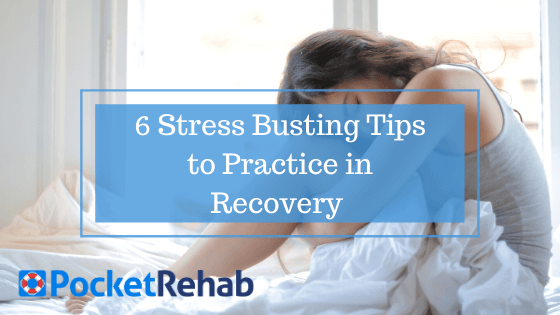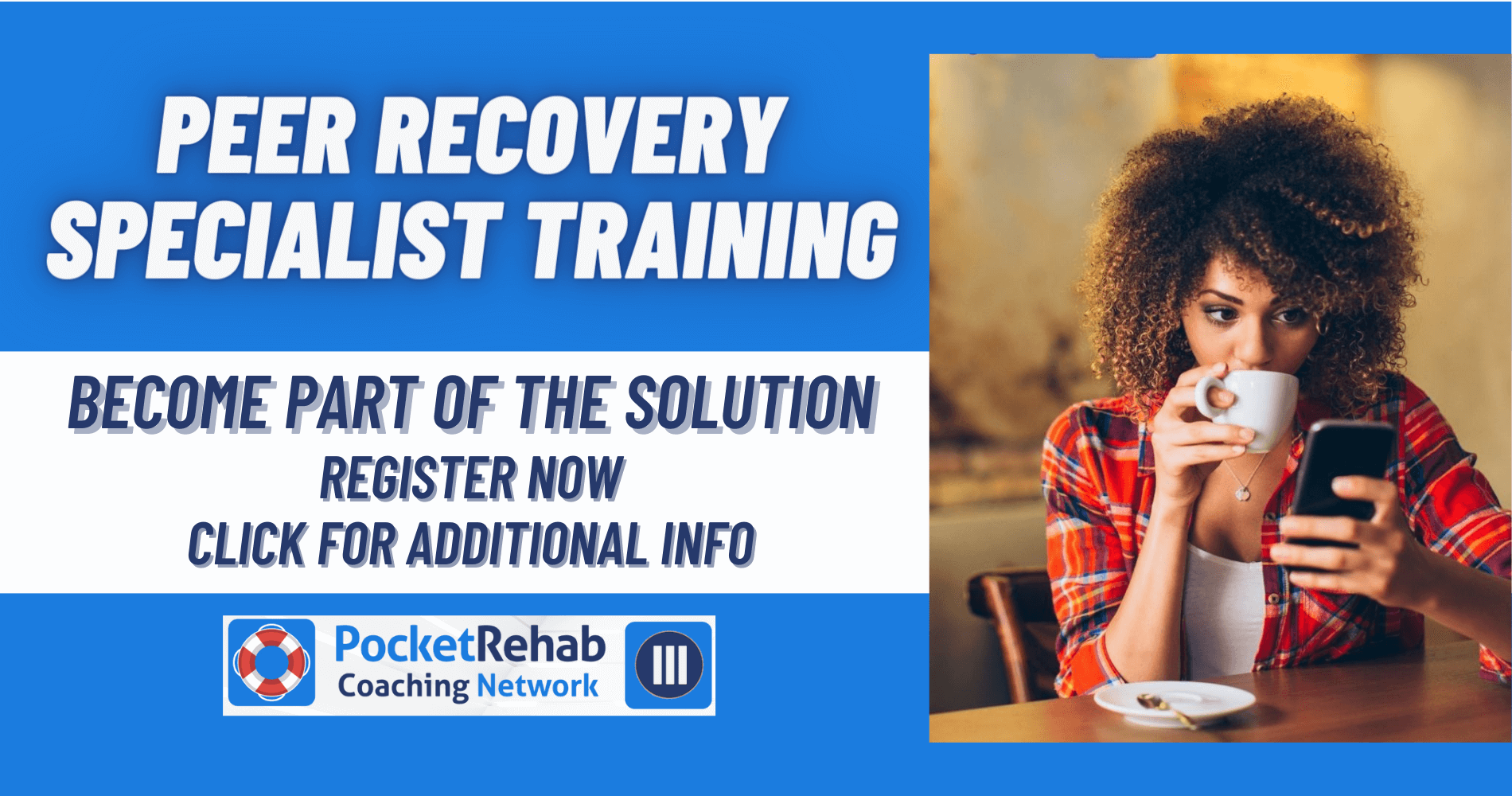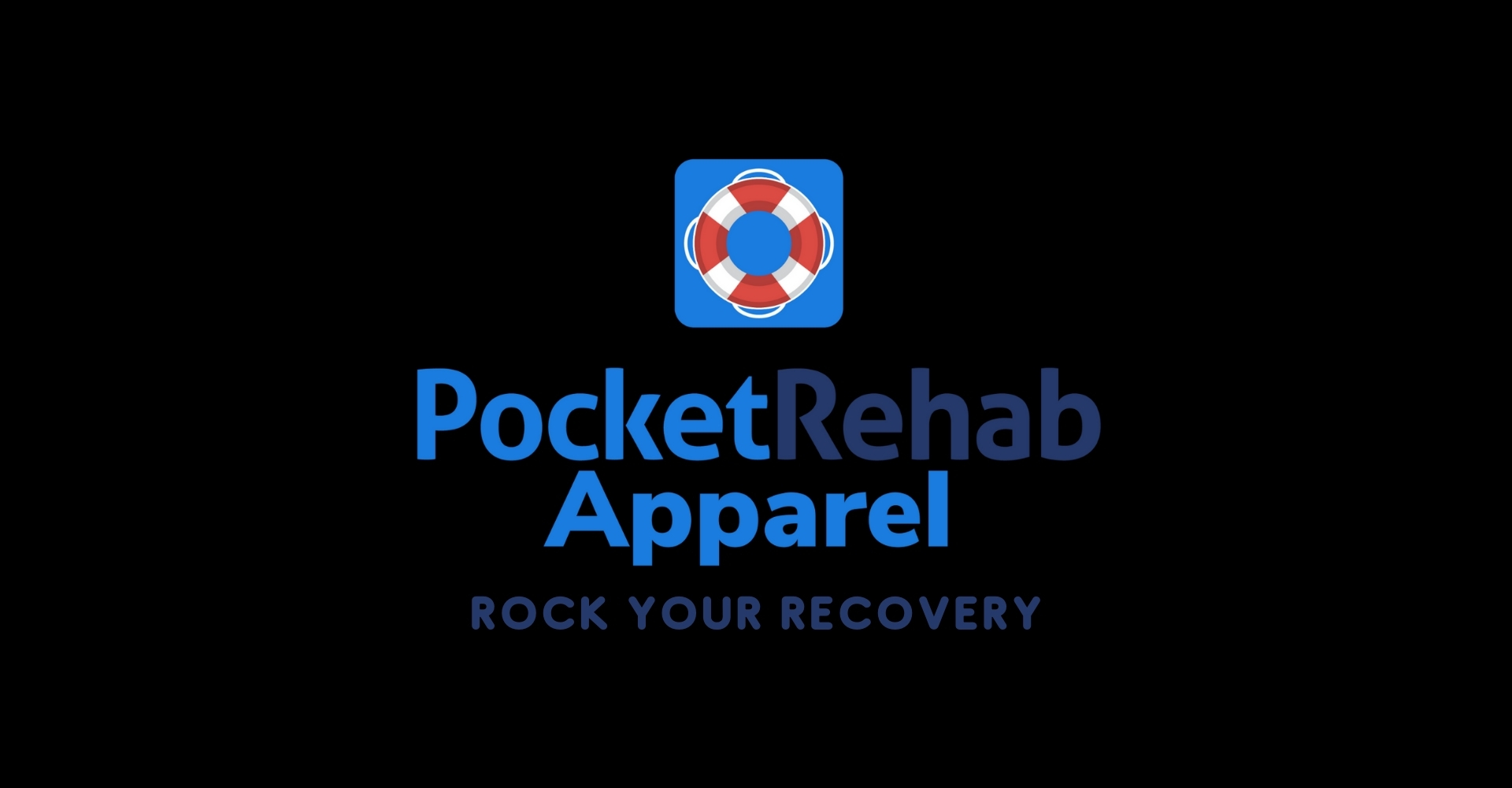6 Stress Busting Tips to Practice in Recovery

Stress management is important for everyone, not just for those in recovery. During treatment, it’s common to learn various coping mechanisms and ways of eliminating stress, but what works in treatment isn’t always as easy to implement when we’re on our own in the “real world.” However, the ways that we respond to stress in recovery can play a key role in whether or not we remain sober so it’s important to know how and when to implement stress-busting practices that will really work to balance the mind and body while boosting the mood.
Prolonged periods of stress can have serious implications on your health. Chronic stress can lead to heart attack, stroke, or several mental health problems such as anxiety or depression. In recovery, it is common to feel overwhelmed by the stress that you face as you aim to change your lifestyle, avoid turning to drugs or alcohol and continue down a healthy, healing path consistent with your sobriety.
Likewise, it is widely understood that stress can actually lead to substance abuse. Therefore, failure to bust stress and leave it behind can lead to relapse if you’re not careful. Fortunately, there are several healthy ways that you can overcome stress without allowing it to manifest in your body and wreak further havoc on your life. Let’s take a look at some of the options you have to rid yourself of stress and begin feeling better in your recovery.
1. Practice Mindfulness in Recovery
We talk about mindfulness in recovery a lot, but it really comes into play when the subject of stress comes up. Why? Because the more mindful you are of what is happening, the more likely you are to find a way to personally reflect and overcome the stress that you are feeling.
Many find that practicing mindfulness in the morning, before they begin their daily routines, can help them to feel more centered and grounded as the day goes on. Consider spending 30 minutes or more every morning focusing on yourself and being present. Instead of rushing around from the second the alarm goes off, set the clock an hour early and allow yourself time to relax and journal.
While mindfulness practices in the morning can lead to reduced stress throughout the day, there are also mindfulness practices that you can initiate in immediate times of stress to bust the stress at that time. Consider mindfulness meditation techniques to reduce stress, help to evoke a sense of relaxation, and calm you even when you’re feeling overwhelmed.
2. Define a Routine & Stick to It
We’re creatures of habit and, as such, when we get in a routine that is healthy, we are likely to FEEL healthy. If we get stuck in a rut, with a routine that is unhealthy--we feel stressed. Routine is vital in recovery and it’s an important element of maintaining low-stress levels. A routine that is overwhelming or too busy can be stressful. Likewise, a routine that is chock full of too much spare time can be boring. A healthy balance generally lies somewhere in between.
To reduce stress, focus on establishing a daily routine that includes measurable goals and a heavy focus on intention. Everything you do during your scheduled time should be directly related to achieving your goals. Aim to wake at the same time each day, go to sleep at the same time each night, and have scheduled times for activities or important behaviors throughout the day.
3. Actively Journal
In recovery, we learn that journaling represents a time of deep reflection and the ability to actively engage in addressing our emotions and feelings. Many times, when a problem seems too big to handle or like it’s too much to deal with, journaling about it and actively thinking about how you feel about it will help you to see it from a new perspective.
Pocket Rehab makes journaling on the go fast and simple. Within the app, you can easily add journal topics that are important to you. Your journal is private and will not be shared with anyone unless you make the choice to share it.
Likewise, in times of stress, looking back on previous stressful times or periods within your journal can help you to see how you overcome similar situations and managed to move forward. If you’re feeling stressed, reflect on your journal and give yourself grace! Remember, this too shall pass.
4. Get Active
Nothing beats stress the way natural endorphins can! Exercise is a stress-busting technique that has been prominently encouraged in recovery for centuries and continues to be a vital element of successful healing. Exercise is like the ultimate calming medicine when stress has interrupted your life.
Exercise reduces the natural levels of adrenaline and cortisol that cause stress within the body. It also actively stimulates the healthy production of stress-busting endorphins that naturally elevate the mood. Additionally, daily exercise can lead to better sleep and improved cognitive processes over time.
If you’re not sure what to do to get moving, consider the following:
-
Take a walk or a run.
-
Go for a swim.
-
Ride a bike.
-
Kayak or canoe.
-
Lift weights.
-
Do Yoga.
-
Practice Tai Chi.
-
Try Kickboxing.
Working out to relieve stress will not only help you feel better in the short term, but the long-term results of daily activity can reduce your chance of heart disease and other side effects that are generally associated with stress.
5. Attend a Virtual Support Group
Virtual support groups are available online and in apps like Pocket Rehab to assist you in staying focused and healthy throughout your recovery. If you’re feeling stressed, consider a virtual support session to help you relax and feel more grounded in the moment.
Although in-person support groups are generally only available at certain times and may not be very accommodating in your immediate time of stress, virtual support programs and chat forums that connect you with a dedicated community make seeking support in real-time easier than ever before. Simply log into Pocket Rehab and, if you need to speak with someone immediately, choose My Lifeline support to connect with members in real-time.
Social support promotes your mental wellbeing and can provide ongoing stress reduction. If virtual support groups do not sound like a helpful service for you, consider giving a friend or family member a call to connect. Emotional support and encouragement when you’re stressed can go a long way in helping you to remain sober and active in your recovery.
6. Use Meditation & Calming Exercises
Much like moving the body can reduce stress so too can calming the body. Consider meditation and calming exercises to reduce the amount of stress that you are feeling. If you’re facing an overwhelming situation, you can quickly calm yourself by focusing on your breathing and making a mindful attempt to slow your body’s response to the stress.
Take full, deep breaths as you actively engage in focusing on a relaxed, calming response. As you slow your breaking and take deep, long, planned breaths, follow these steps. Use the 5,4,3,2,1 technique as follows:
-
Acknowledge five things that you see around you that are actually there. Perhaps you see a ceiling fan, a pencil, a desk, a chair, and a light. Whatever it is, the goal here is to ground yourself in your surroundings.
-
Acknowledge four things that you can touch around you. Perhaps it’s your hair, the ground, your desk, and a chair.
-
Acknowledge three things that you can hear. Perhaps this is your breath, the air conditioner, and a coworker nearby.
-
Acknowledge two things that you can smell. Perhaps this is soap or the smell of fresh laundry.
-
Acknowledge one thing you can taste. Did you chew gum after lunch? Whatever it is, the purpose here is to be finally calm enough that you are in tune with your surroundings and yourself, completely.
Next time you’re feeling anxious or stressed, follow these 6 stress-busting techniques to help you calm down and feel more in control of the situation. For immediate support in recovery, visit Pocket Rehab where you can connect with thousands of other members that are ready to actively share and receive support right within the app.
Tags: stress busters, reduce stress, stress reduction, calming, coping, coping strategies, coping mechanisms





